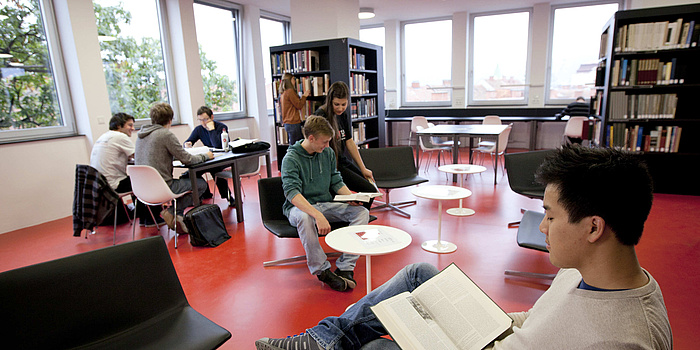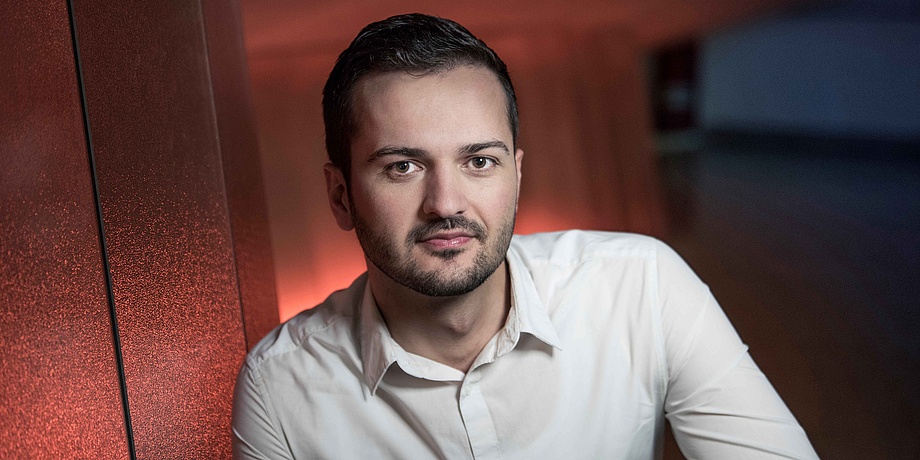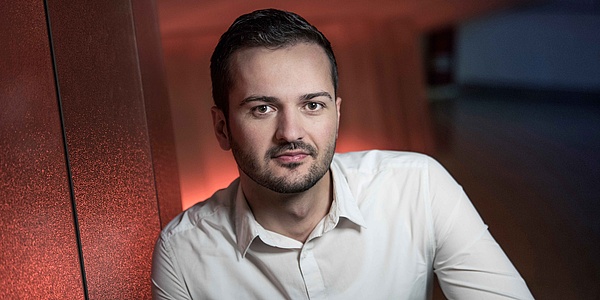Hello, my name is Ekrem Toroman. I come from Bosnia and Herzegovina, and study Construction Management and Civil Engineering at Graz University of Technology (TU Graz). I will explain how I started studying successfully after a bad start in my studies in the following nine tips for studying better.
These tips helped me change my life from the ground up within a few years. In the beginning, I lacked focus in my studies. My goals seemed unattainable, and this had a negative impact on my overall motivation. At some point I decided that it couldn’t go on like this. With a lot of effort I changed my value system, the way I set my goals and my daily routines – and I managed to do this successfully. Today, I am convinced that all students have the potential to successfully complete their studies. It is a question of motivation and the right learning strategy. If you apply the following tips, you are sure to succeed in your studies.
#studymotivation
1. Set yourself goals
The first step to achieving something is to imagine the thing you want. If you imagine something and say to yourself “I want to achieve this”, you have already set yourself a goal. Or even better, imagine a future in which you have already achieved what you want. There are three types of goals:
• Big goals: These are important to keep you on track over time. They are like a compass for life that always shows you in which direction you have to go – especially in difficult times. Such goals can include completing one’s studies, buying a house, starting a family, or retiring in a specific place, etc.
• Small goals: They can be part of the big goals, or have nothing in common with them. They are important in achieving short-term success. If the goal is too far in the future, it is difficult to stay motivated over a longer period of time. Successes are for your motivation what firewood is for a campfire. If you don’t experience any, the fire can go out. Therefore, it is important to set smaller goals that can be achieved in a shorter period of time. Such goals can include passing individual exams, going on a trip, saving for a new mobile phone, completing a certain section of your studies within a designated time, and so on.
• Micro-goals: These are the most important ones to ensure that you have a positive attitude. These are everyday things that you can do every day. They start with making your bed in the morning, keeping your room tidy, tidying up right after a meal, exercising three times a week or things like that. These are the things we feel guilty about not doing. In contrast, we feel good when we have done them. These small positive feelings add up and unconsciously motivate us towards the bigger goals.
2. Define your value system
Every person has a value system according to which they allocate a certain value to things and events in their life. This value system is used to decide how much time and resources we are willing to spend on a particular thing. Goals that are important to us should be at the top. If you have the desire to complete your studies, you should make sure that your studies are among the top three most important things in your life.
3. Develop a growth mindset
When you start a study programme, it must be clear that many new things await you. Some of them will seem very difficult or even impossible at first glance, and not everything will go well at the first attempt. Whoever works also makes mistakes, and whoever wants to become an expert must start as an amateur. To succeed in your studies, it is important to have a growth mindset. This attitude tells you that you can develop and improve in any area if you just put enough effort into it. It is a dynamic self-image that welcomes growth and forms the basis for an agile mindset. It is de facto the case that anyone can learn anything, it is just a question of time and commitment.
4. Be hungry for knowledge
A day in which you have learned nothing is a lost day. You should always remember this sentence. Your hunger for knowledge should go beyond your studies. No matter what the field, a university educated person should have an extensive knowledge base on many subjects. With this attitude, studying will also be much easier for you. It is one of the basic needs of human beings to learn and to constantly develop. The university is the perfect place to satisfy this need.
“Love of learning is the most necessary passion …in it lies our happiness. It’s a sure remedy for what ails us, an unending source of pleasure”. This quote from the French mathematician, physicist and philosopher, Émilie du Châtelet, sums it up.

"It is one of the basic needs of human beings to learn and to constantly develop. The university is the perfect place to satisfy this need." © Lunghammer – TU Graz
5. Look for idols
Your idol can be a person who embodies the ideal self-image of your future self. Someone who has completed his or her studies and is successful in professional life. This person can be the source of endless motivation. Since we cannot see ourselves in the future, it is important to have someone who represents our aspired self. A person does not always have to be chosen as an idol. You can idealize certain traits and see people who possess them as idols.
#studystrategy
6. Create good time management
The day has 24 hours and the week seven days. In this time frame, you need to create a routine that works well with your character traits and your other activities. For me, splitting the week into three portions worked: a studies portion, work portion and leisure portion. When things got stressful because of exam preparations, the portion of free time became smaller and I took a few hours for myself after studying. I recommend working no more than two days a week alongside your studies and definitely not several days with a few hours each. For example, if you work 16 hours a week, make sure these are in two days in a row. This gives you your portion of work. This is ideally followed by 4 days for studying and then one day for free time.
7. Make a studying routine
The most powerful tool to achieve a goal is the right routine. In this way, we get our body used to doing a certain activity over and over again without too much effort. In this case, that activity would be studying. Without this routine, we have to keep adjusting to new circumstances, which our brain doesn’t like. This adjustment and attitude cost us valuable energy even before we start learning. A routine that runs well is worth its weight in gold. All four days of the learning portion should look the same. You should think about and plan things like meals, study locations, breaks, study material, etc. in advance. There should be no unpleasant surprises during the four days of studying. Create a schedule for each day, giving your brain certainty and saving it from wasting valuable energy on questions like: What am I going to eat today? Where am I going to study? Where do I start? etc.
8. Surround yourself with people who have similar goals to yourself
Find people with the same goals and qualities as you. Humans are social creatures and feel much better in a group than alone. Especially when it comes to difficult tasks, an active exchange of knowledge can be beneficial for all involved. Even if you prefer studying alone, make sure you meet up with your circle of friends in your free time after studying. We have a limited amount of energy at our disposal, and we have to recharge it from time to time. Besides sleeping, relaxing moments with friends are the best way to recharge your batteries and get away from the stress of studying. In addition, you can motivate each other to achieve your goals.
9. Take care of your physical and mental health
The most important thing in all this is never to forget your own health. The strongest motivation and the best strategy will do you little good if your body suffers. All the activities mentioned above consume our energy, physically and also psychologically. A weak body will have a hard time getting you through your university years successfully. It is your job to keep your body strong and healthy.
Keep moving and – if you are studying in Graz – take advantage of the range of sports offered by the USI courses, for example.
If life sometimes weighs you down too much and you notice that you’re experiencing psychological strain, contact us at the Students Union (HTU Graz). We also offer psychosocial counselling for TU Graz students.
I hope these tips will help you as much as they did me. Today I am doing my Master’s programme and my (study) life has improved from the ground up. Your studies are the foundation for your entire adult life. Use this opportunity. Your future self will be very grateful!
If you want to read more posts about working as a student, finding your first accommodation, networking, leisure activities and more visit the "Student Ambassador Stories" website.





